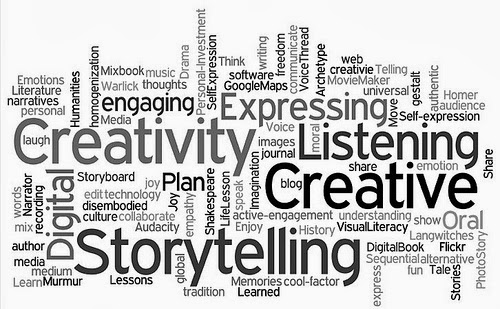I recently had the honor of serving as moderator of rollingout’s Female Success Factor program with the theme of becoming a Social and Digital Mastermind. It was designed to give inspiration to women on their individual paths to making their mark in the workplace, as entrepreneurs and as artists by using today’s tools such as social media to create their personal brands. We had a spirited discussion filled with success strategies and tips that the attendees were able to walk away with, but what was a cord interwoven through our discussion points was the importance of great storytelling and how enormously impactful it can be.
As a now seasoned communications professional, I truly understand the power of a great story. I have always been a voracious reader and hooked on all types of books. My favorite place to go as a child was my neighborhood library (#nerdalert). I loved checking out a bunch of books and losing myself in stories of every type: suspense, drama, romance, or thriller. I was hooked from the time my mother read me my first Dr. Seuss. It would then make sense that I would go on to major in journalism in college: an industry dedicated to storytelling of the everyday human experience. This led to me pursuing public relations and integrated marketing which is where my career resides now. The discussion at rollingout’s Female Success Factor emphasized the platform that social media provides for everyone to tell a story – whether about themselves, what they experience and what they feel they need to communicate to the world. Also, it offers the opportunity to share an original piece of fiction, poetry,
 promote a business or brand to the whole wide world. One central trait for a story to resonate is authenticity – even if it is based in fiction. Social media makes it easy to sniff out what’s true and what’s false. And when it’s false, like the Cobra Kai from The Karate Kid, people will show you no mercy.
promote a business or brand to the whole wide world. One central trait for a story to resonate is authenticity – even if it is based in fiction. Social media makes it easy to sniff out what’s true and what’s false. And when it’s false, like the Cobra Kai from The Karate Kid, people will show you no mercy.
For me, the following are some tips I’ve picked up along the way to achieve successful and strategic storytelling on behalf of my clients. I’m still learning as well as media shifts and changes take place but some fundamentals will always hold true.
1. Start with an anchoring point or central theme of what your story will communicate.
2. Be sure to fact check when you are including details for your story – it speaks volumes for your credibility and professionalism if you take the time and do the due diligence.
3. Be authentic and if your story is in the first person, be sure it reflects your voice accurately.
4. Create a connection through your story with the reader to keep them interested. Remember, you are competing for mindshare in a competitive landscape so be sure to make it count.
5. Distill, distill, distill. My favorite quote: Brevity is the essence of true wit. I live by this principle. I am often brief to a fault, but when I do speak, people listen because my message, in its shortness, makes a big impact.


Leave a Reply